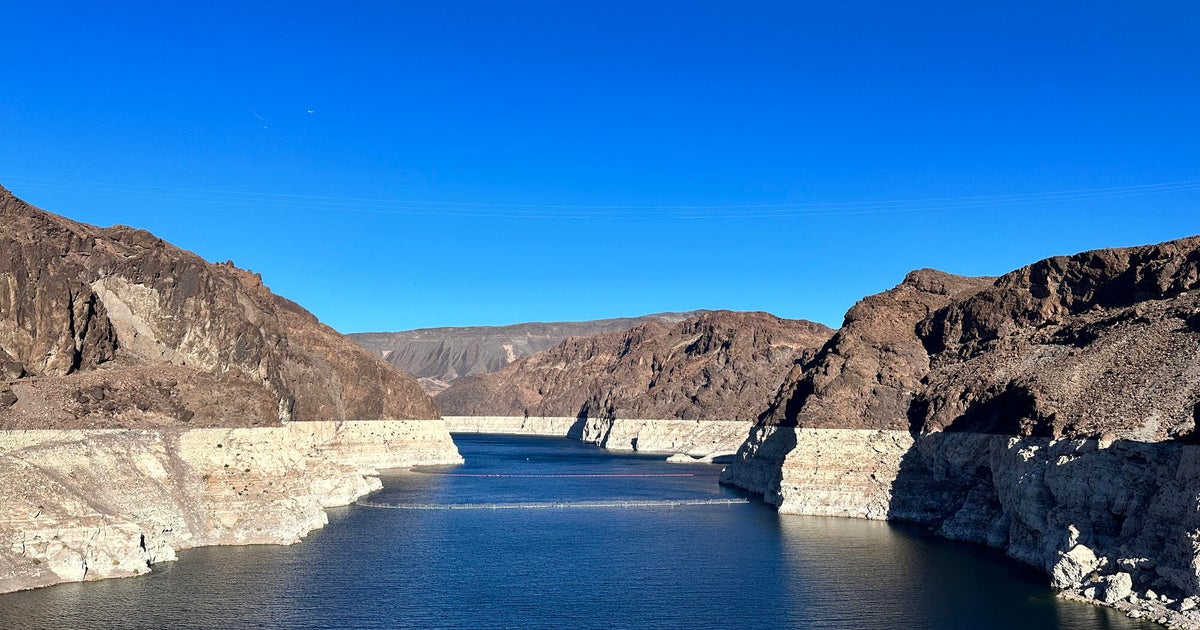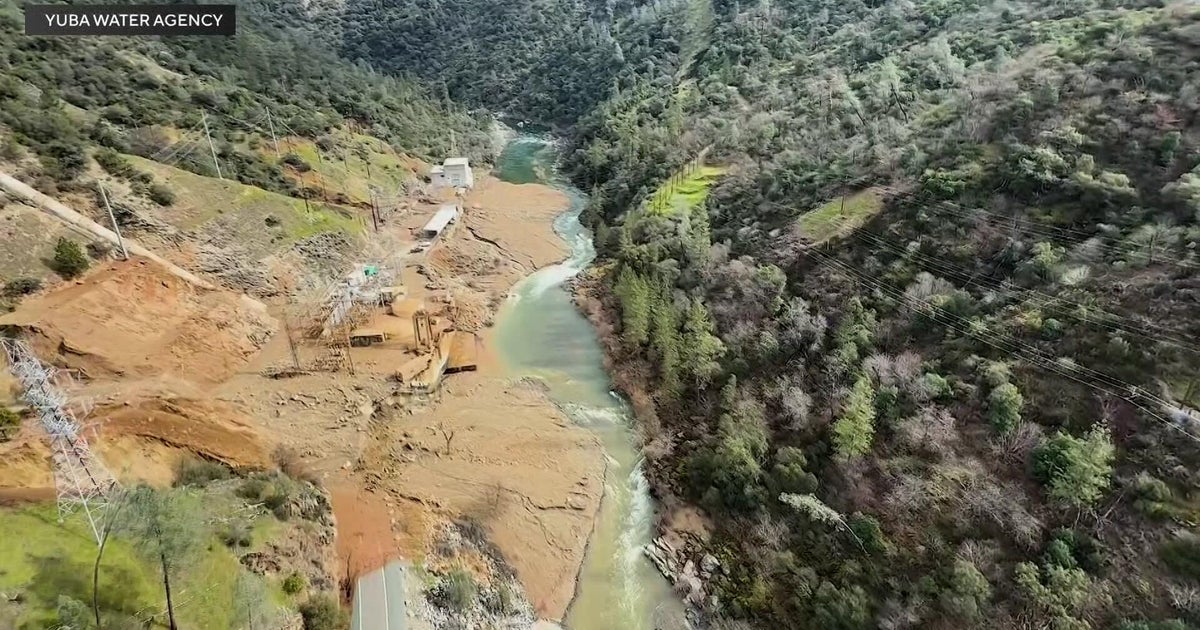Nevada lithium mine might doom rare wildflower, conservationists say
In the early hours of June 1, 2019, a pair of scientists trekked up a desert hillside to visit a rare wildflower for the first time.
"I'll never forget it as long as I live," said Patrick Donnelly, the Great Basin director at the Center for Biological Diversity."These yellow, cream-colored flowers were being hit by the sunrise just right. And we could see the whole species from one place."
In the background, a construction vehicle was rolling over the ridge. The early rumblings of mining exploration looked to Donnelly like a clear threat to the population of flowers known as Tiehm's buckwheat.
His hiking partner, the botanist Naomi Fraga, estimated there are only about 16,000 of these wildflowers left — all within about 10 acres on a ridge in Esmerelda County, Nevada. But those thousands of blooms could dwindle to zero if the federal government lets a lithium mine set up shop on the public land that is the only home of Tiehm's buckwheat, according to Fraga, Donnelly, and over a hundred other scientists who've signed onto a fight with the Australian mining company, Ioneer.
The company's Rhyolite Ridge mine would help supply the raw materials for Ford and Toyota's electric car batteries. And it is the current flashpoint in a string of battles playing out around the country over what level of environmental damage can be tolerated in the name of the green revolution.
The Bureau of Land Management finished the first step in its assessment of the contentious mining permit case this month, with a final decision expected by the beginning of next year on what could be one of the first lithium mines in America.
Federal officials are scrutinizing Ioneer's plans to conserve Tiehm's buckwheat, which has been protected by the Endangered Species Act since January of this year.
If it goes Ioneer's way, the mine could start producing in 2026 and pull enough lithium from the ground to supply about 400,000 electric vehicles per year for about half a century, according to company officials. Automotive companies use lithium in their batteries because it's a lightweight metal that can pack a lot of energy and be easily recharged.
Fraga and other conservationists recognize lithium mines are crucial to efforts to reduce carbon emissions and mitigate climate change. But they say they want companies like Ioneer to pursue the metal in a way that does as little harm to the surrounding habitat as possible
"I would hope that people would think that electric cars shouldn't come at the cost of extinction," said Fraga.
A group of concerned scientists says Ioneer's current mining plan puts lithium production so close to Tiehm's buckwheat that all the dust thrown up in construction and digging would make it hard for the plant to photosynthesize or to reproduce, since the insects that pollinate it would be disturbed. Without a one-mile buffer protecting the eight dense patches of yellow plants from mining activities, the scientists say the species won't survive.
Ioneer insists that its mine can coexist with Tiehm's buckwheat on Rhyolite Ridge, citing consultations with botanists and over $1 million spent in conservation research. The company says it has already drawn up plans that distance mining activity from the plants as much as possible, while still allowing the company to tap into the metal deposits. To control dust, they plan to invest in monitoring systems and chemical methods to limit what reaches the flowers, according to Bernard Rowe, the managing director at Ioneer.
"We're thinking about sending people to Mars and we can't control dust?" Rowe said. "Mines do have an impact on the environment, but we have to minimize it. I think in this case, that's a reasonably straightforward thing to do."
In January the U.S. Energy Department promised Ioneer $700 million to help build its Rhyolite Ridge lithium mine, contingent on a successful environmental review. The White House has been supporting mines that contribute to electric vehicle production with money approved in the bipartisan infrastructure deal. The administration argues America's energy independence and national security depend on onshoring the green supply chain. Currently, a few countries, including Australia, Chile and China, dominate the global lithium market.
In a recent case involving a Nevada lithium mine 350 miles north of Rhyolite Ridge, a judge ruled that construction could start on Thacker's Pass mine, even though some environmentalists and members of a Native American tribe argued it could contaminate groundwater and degrade land that's home to threatened animals like the sage grouse and golden eagles.
In her decision, U.S. District Judge Miranda Du wrote that the mining company Lithium Americas successfully argued, "There is, if nothing else, a tension between the macro-environmental benefit that could result from the project and the micro (relatively speaking) environmental harm."
Climate change has already driven a global decline in wildlife, that's only projected to worsen. The International Energy Agency, IEA, says the world will struggle to meet climate goals unless lithium mining projects triple before 2050. Already, lithium demand is growing quickly; in the past year, the cost per ton of the metal—sometimes called "white gold"—tripled to about $37,000, according to research by the United States Geological Service.
Donnelly says the Center for Biological Diversity will sue if the government permits Ioneer's mine as proposed.
"Buckwheat may seem like this obscure wildflower on a hillside somewhere in the middle of nowhere in Nevada," Donnelly said, "But biodiversity gives us food on our plates and clean air to breathe and clean water to drink."
Since the first hike in the summer of 2019, Fraga and Donnelly have made multiple trips to see Tiehm's buckwheat in its natural habitat. Donnelly visits at least once a month. And Fraga has made the same trip up to Rhyolite Ridge over 40 times—a 12-hour round trip from her home in California.
"This buckwheat is important insomuch as I think life is important, and it represents a unique form of life on the planet," Fraga said.





